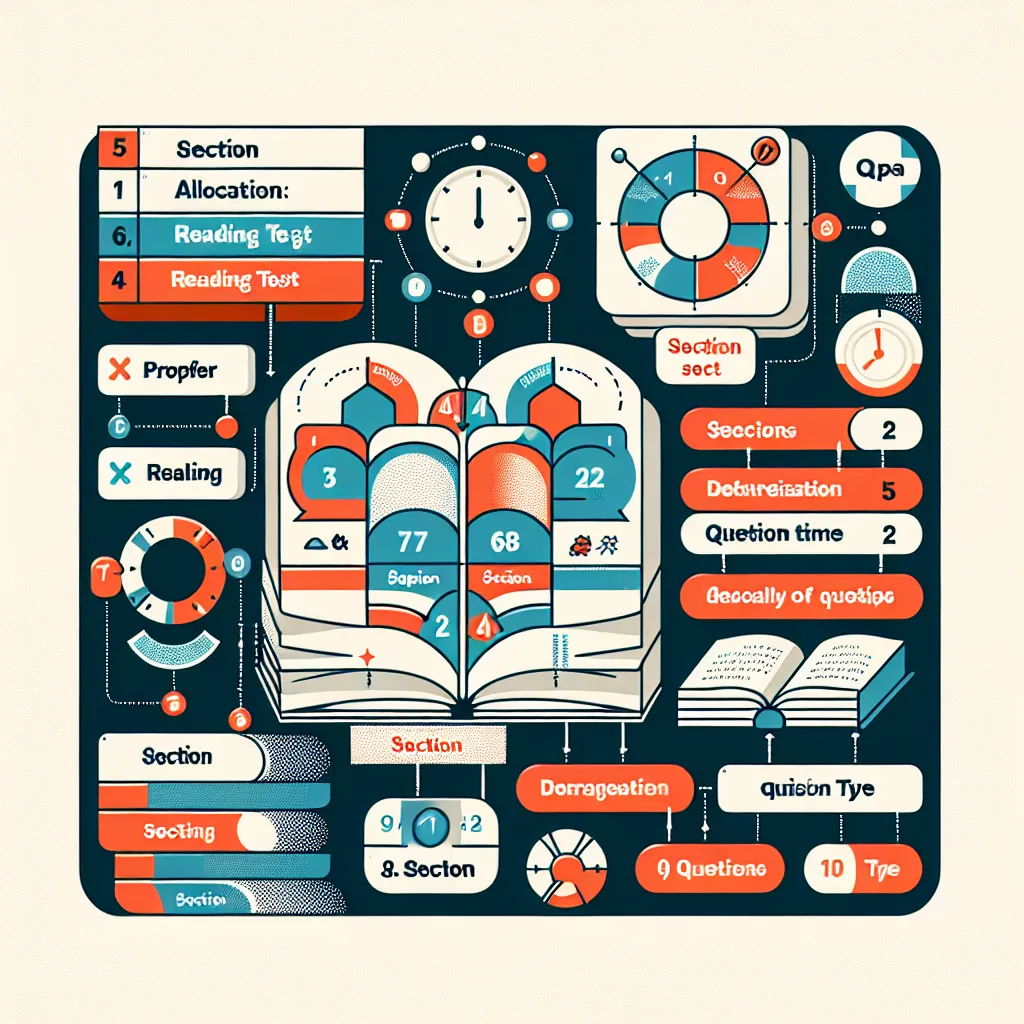The IELTS Reading test is a challenging component of the IELTS exam that requires careful preparation and strategic approach. Many test-takers struggle with common pitfalls that can significantly impact their scores. In this comprehensive guide, we’ll explore effective strategies to help you avoid these mistakes and maximize your performance in the IELTS Reading test.
Understanding the IELTS Reading Test Format
Before diving into specific strategies, it’s crucial to understand the structure of the IELTS Reading test. The test consists of three sections, each containing a long text and a set of questions. You’ll have 60 minutes to complete all three sections, which means time management is critical.

Common Mistakes to Avoid in IELTS Reading
1. Poor Time Management
One of the most frequent mistakes is spending too much time on a single question or passage. This can lead to rushing through the remaining questions and potentially missing easier points.
Strategy to Avoid This Mistake:
- Allocate 20 minutes for each section.
- Quickly skim the questions before reading the passage to know what information to look for.
- If you’re stuck on a question, move on and come back to it later if time allows.
2. Not Reading the Instructions Carefully
Each question type in the IELTS Reading test has specific instructions. Misreading or ignoring these can lead to unnecessary errors.
Strategy to Avoid This Mistake:
- Read the instructions for each question type carefully.
- Pay attention to word limits for short answer questions.
- For matching questions, check if you can use an answer more than once.
3. Falling for Distractors
The IELTS Reading test often includes distractors – words or phrases that appear in the text but are not the correct answers.
Strategy to Avoid This Mistake:
- Look for synonyms and paraphrases of the words in the questions.
- Don’t choose an answer just because it contains words from the question.
- Read the entire sentence or paragraph to understand the context.
4. Overlooking Key Words
Missing key words in questions can lead to misinterpretation and incorrect answers.
Strategy to Avoid This Mistake:
- Underline or circle key words in the questions.
- Pay attention to qualifiers like “always,” “never,” “most,” or “least.”
- Look for words that change the meaning of a sentence, such as “however,” “although,” or “despite.”
5. Not Using Skimming and Scanning Techniques
Trying to read every word in detail is time-consuming and often unnecessary.
Strategy to Avoid This Mistake:
- Use skimming to get a general idea of the passage.
- Scan for specific information when answering questions.
- Practice these techniques regularly to improve your speed and efficiency.
6. Ignoring the Order of Information
Questions in the IELTS Reading test often follow the order of information in the passage.
Strategy to Avoid This Mistake:
- Use this to your advantage by looking for answers in a logical sequence.
- If you find the answer to question 5 before question 4, you know to look earlier in the text for question 4’s answer.
7. Mismanaging Fill-in-the-Blank Questions
These questions require precise answers, and many test-takers lose points due to spelling errors or exceeding word limits.
Strategy to Avoid This Mistake:
- Copy words exactly as they appear in the passage.
- Double-check your spelling.
- Stick to the word limit specified in the instructions.
8. Not Checking Answers
In the rush to complete all questions, many forget to review their answers.
Strategy to Avoid This Mistake:
- Reserve the last 5 minutes for checking your answers.
- Ensure you’ve answered all questions – there’s no penalty for guessing.
- Verify that you’ve transferred your answers correctly to the answer sheet.
Practical Exercises to Improve Your IELTS Reading Skills
To effectively avoid these common mistakes, regular practice is essential. Here are some exercises you can incorporate into your study routine:
-
Timed Reading Practice: Set a timer for 20 minutes and attempt to complete one full reading passage and its questions. This will help improve your time management skills.
-
Keyword Identification: Take a practice passage and highlight all the key words and phrases. Compare your selections with those of a study partner or tutor to refine your ability to identify crucial information.
-
Paraphrase Matching: Create a list of sentences from a practice text and challenge yourself to find paraphrased versions of these sentences in the passage. This exercise will enhance your ability to recognize synonyms and alternative phrasings.
-
Skimming and Scanning Drills: Give yourself 30 seconds to skim a passage, then write down the main topic and any subtopics you identified. For scanning, set specific questions and time yourself finding the answers in the text.
-
Error Analysis: After completing a practice test, don’t just check your answers. Analyze why you got certain questions wrong and categorize your mistakes. This will help you identify patterns in your errors and focus your study efforts.
Conclusion
Avoiding common mistakes in the IELTS Reading test requires a combination of strategic preparation, careful technique application, and consistent practice. By being aware of these potential pitfalls and actively working to overcome them, you can significantly improve your performance and achieve the score you need.
Remember, the key to success in the IELTS Reading test lies not just in your English proficiency, but also in your ability to navigate the test efficiently and accurately. Keep practicing, stay focused, and approach each question with a clear strategy. With dedication and the right approach, you can master the IELTS Reading test and take a significant step towards achieving your academic or professional goals.
We encourage you to share your own experiences and tips for avoiding mistakes in the IELTS Reading test in the comments below. Your insights could be invaluable to fellow test-takers preparing for this challenging exam.